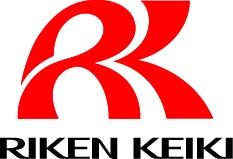HOME > Sustainability > Corporate governance
Corporate governance
Our management philosophy is guided by a singular enduring theme, aimed at advancing society: realizing environments in which people can work with peace of mind. To enhance our corporate competitive strengths and raise our corporate value, we strive to implement management reflecting shareholder and investor interests that strengthens management decision-making speed, efficiency, and transparency. For more information, please review our Securities Report (“4. Status of the Submitting Company: 6. Status of Corporate Governance etc.”) and the Corporate Governance Report submitted to the Tokyo Stock Exchange.
Basic policy on internal controls systems
- Structure intended to ensure executives and employees discharge their duties in compliance with laws, regulations, and the articles of incorporation
- (1) In full recognition of our essential obligation to comply with laws and regulations and to secure our survival as an enterprise, we and our subsidiaries (“the Group” hereinafter) strive to establish management systems that gain broad trust throughout society through exemplary executive and employee behavior reflecting the highest ethical standards.
- (2) To fulfill our social responsibilities, to comply with laws and regulations, and to protect the environment as a responsible corporate citizen, the Group has established a Management Philosophy and Management Policies. We strive to maintain and enhance awareness of compliance issues based on a Code of Conduct and Action Guidelines that serve as a shared set of values and ethics applying to all executives and employees and on which all actions must be based.
- (3) We have established a Compliance Committee chaired by the President in which external attorneys participate to ensure and enhance the spirit of thorough compliance in our business activities.
- (4) We have established a Compliance Hotline as an internal whistleblowing system to further enhance corporate ethics and compliance within the Group.
- (5) We have established a Corporate Strategy Office independent of business execution sections to implement internal audits based on the Regulations on Internal Audit (K57000008) and to report the findings thereof to the Board of Directors and to the Audit and Supervisory Committee.
- (6) The Audit and Supervisory Committee audits the performance of directors from an independent perspective, including performance related to the maintenance and operation of internal controls systems.
- Systems related to the retention and control of information concerning the performance of the duties of directors Pursuant to laws, regulations, the Regulations on Document Control (K57000002), and other provisions, the Company makes use of information concerning the execution of duties of directors, such as records of decisions made in important meetings such as the Board of Directors, as well as controls the preparation, use, retention for specified periods and disposal of such information.
- Rules and other systems related to management of risks of losses
- (1) The Company maintains a structure that requires periodic meetings of a quality committee to develop measures to prevent product defects and associated complaints and their recurrence, based on identifying important risks that must be controlled to maintain and increase the Group’s corporate value and risks related to the quality we deliver as a manufacturer of safety devices. Each section in charge establishes rules for safety, quality, environmental, and other risks, as well as rules concerning compliance.
- (2) Having established a BCP Task Force led by the President, the Company responds to emergencies through Companywide crisis management in accordance with the Business Continuity Planning (BCP) Rules and Emergency Response Standards.
- Systems to ensure the effective and efficient performance of the duties of the Directors
- (1) The Company formulates medium-term management plans and annual management plans and obtains approval for these plans from the Board of Directors.
- (2) The Company convenes periodic meetings of the Board of Directors to handle various tasks, including decisions on important matters, as well as to assess the performance of the duties of the Directors and management of financial results. The Management Planning Committee, a subsidiary of the Board of Directors whose membership consists of all Directors and Executive Officers other than Outside Directors, meets every other week for advance deliberations intended to enhance the deliberations of the Board of Directors and deliberations on Company business execution and the implementation of various measures within the scope of duties delegated by the Board of Directors.
- (3) The Company has established an Executive Officer system and strives to clarify responsibilities and relevant scopes of authority based on the Executive Officer Rules, thereby ensuring effective operations.
- Systems for ensuring the propriety of Group operations (the Group consisting of the Company and its subsidiaries)
- (1) The Company has established the Affiliate Management Rules to improve Group management efficacy by clarifying matters related to management of subsidiaries and thereby promoting the effective guidance and growth of subsidiaries. Based on these rules, subsidiaries are appropriately managed and reports received as necessary.
- (2) The Company maintains a system designed to ensure the propriety of Group business operations. The system includes dispatching executives to subsidiaries.
- Matters concerning employees assigned to assist in the duties of the Audit and Supervisory Committee as requested by that committee; matters related to the independence of such employees from Directors (excluding Directors who are members of the Audit and Supervisory Committee); matters related to ensuring the efficacy of instructions to such employees from the Audit and Supervisory Committee
- (1) The Company responds appropriately to requests from the Audit and Supervisory Committee concerning the assignment of employees to assist in the Committee’s duties.
- (2) Consent from the Audit and Supervisory Committee is required to select, transfer, or make changes in the compensation of employees assigned to assist in its duties.
- (3) If an employee assigned to assist in the duties of the Audit and Supervisory Committee serves concurrently as an employee of another section, he or she must prioritize duties associated with the Audit and Supervisory Committee.
- Systems related to reporting to the Company Audit and Supervisory Committee
- (1) Systems for reports by Company executives and employees to the Audit and Supervisory Committee
Executives and employees report to the Audit and Supervisory Committee concerning the state of Company business execution as requested by the committee. Directors who are members of the Audit and Supervisory Committee attend important meetings of the Management Planning Committee and other bodies to ascertain the process of decision-making on important matters beyond the purview of the Board of Directors, as well as the state of execution of related operations. They review important documents related to business execution, including major documents for approval, and request any necessary clarification from executives or employees. - (2) Systems for reporting by directors, auditors, and employees of subsidiaries, or parties who have received reports from directors, auditors, and employees of subsidiaries to the Company Audit and Supervisory Committee
A system is maintained whereby directors, auditors, and employees of subsidiaries or parties who have received reports from directors, auditors, or employees of subsidiaries report on relevant matters to the Company Audit and Supervisory Committee.
- (1) Systems for reports by Company executives and employees to the Audit and Supervisory Committee
- Systems to ensure that those who report matters to the Audit and Supervisory Committee are not subject to disadvantageous treatment as a result
We have established rules that prohibit the disadvantageous treatment of those who report matters to the Audit and Supervisory Committee for reasons involving such reports. - Procedures for the prepayment or reimbursement of expenses incurred in the undertaking of the duties of the Audit and Supervisory Committee and other matters concerning policies related to the processing of costs or obligations arising in connection with the performance of such duties
In cases in which the Audit and Supervisory Committee demands from the Company payment or other handling of expenses incurred during the course of its duties, such costs or obligations shall be promptly processed, unless recognized as unrelated to the performance of the duties of the Audit and Supervisory Committee. - Other systems to ensure the efficacy of audits by the Audit and Supervisory Committee
As part of efforts to deepen mutual understanding with the Representative Director, the Audit and Supervisory Committee meets regularly with the Representative Director to exchange opinions on issues the Company must address, the state of the audit environment, and important audit-related topics. - Systems for ensuring the reliability of financial reports
To ensure the reliability of financial reports, pursuant to the Financial Instruments and Exchange Act, the Company maintains an internal controls system governing the submission of valid and appropriate reports. Additionally, we continually assess this system for effective functioning and make any needed corrections. - Systems for excluding antisocial forces
The Company’s Action Guidelines, distributed to all executives and employees to ensure their thorough understanding throughout the organization, call for responding unambiguously to attempts to exercise influence by antisocial forces or groups threatening the order and safety of civil society, as well as working with law enforcement and other agencies to collect information on antisocial forces.




